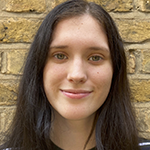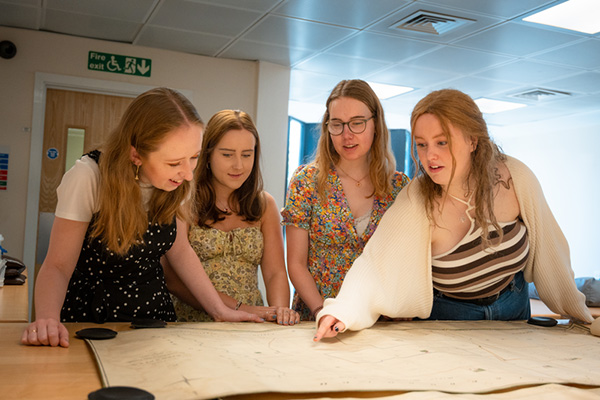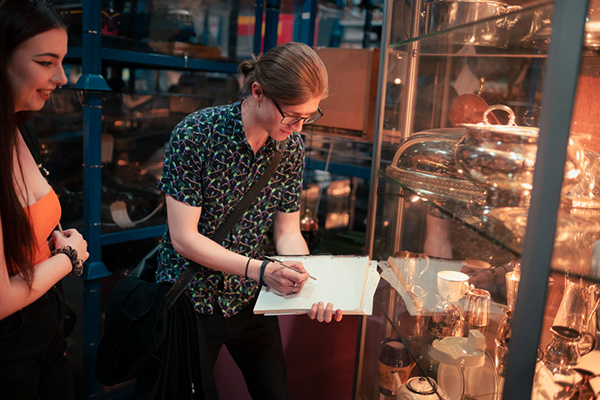View semester dates

BA (Hons) History/Politics
Learn how human society works by understanding its past. Analyse the meaning of ideas and investigate the factors that have shaped society and culture around the world over time.
Year of entry: 2026/27
View semester dates
3rd in the UK for research impact in history
8th in the UK for history
Why study history and politics at York?
Take an interdisciplinary view. Combining history and politics allows you to explore the forces that have shaped societies and cultures in the past. You'll graduate with an exciting global perspective.
Explore the principles of power. You'll not only discover how power is won, but also how it's used to drive the decisions that influence our daily lives. You'll learn to think politically about some of today's most pressing issues, such as poverty, debt, conflict and environmental change.
Choose from an extensive range of modules in both subjects. You’ll study modules spanning geographic, cultural and thematic boundaries. You'll hone your skills to focus on the areas of politics that interest you most.
Be supported by internationally-renowned experts. Our staff regularly contribute to news media and our politics staff advise governments and institutions across the globe. Their research informs their teaching. You'll engage with the latest thinking on current and historic events, then develop your own critical thinking in the process.

Studying History and Politics at York is always lively with discussion, with lecturers engaging and pushing students to explore ideas as fully as possible. I have enjoyed interacting with both the contemporary and historical elements of this degree. This has helped me to become more well-rounded in my approach to current and historical events, both within my study and outside of it.
Course content
One of the most exciting aspects of the History and Politics degree at York is living and learning in a city with such a long and varied history. You'll be surrounded by evidence of the city’s rich heritage. Stretching from the Romans, through the Vikings to the Georgians, there's a heritage that we actively draw on in our teaching.
Year 1
You'll begin examining the broader concepts of how history has shaped the modern world. At the same time, your required Politics modules will focus on contemporary politics with an emphasis on the state.
Core modules
- Political Communities in World History
- Political Analysis
- Arguments and Analysis
- Knowledge and Belief in World History OR Evidence and Methods
Option modules
You will study two option modules. Examples can be found below. Some option module combinations may not be possible. The options available to you will be confirmed after you begin your course.
- Introduction to Political Theory: The State, Liberty and Revolution
- Introduction to International Politics: Global Hierarchies and Global Order
- York Policy Lab
Academic integrity module
In addition to the above you will also need to complete our online Academic Integrity module.
Year 2
Your second year in the History and Politics degree will be about preparing for your final dissertation and reports. You'll begin to design your project and learn how to use the tools needed to complete it.
Core module
Option modules
You will study four option modules. Examples can be found below. Some option module combinations may not be possible. The options available to you will be confirmed after you begin your course.
- In semester one, you'll take one History Explorations option module alongside the Politics core module Theories of the State, and one Politics option module OR one elective module.
- In semester two, you'll take one History Explorations option or an elective module, alongside the core History module Historical Thinking and one Politics option module.
Politics
Examples may include:
Semester One
- Things Fall Apart
- Politics of Development
- European Union Politics
- War and Peace
- IR Theory and Planet Politics
Semester Two
- The Politics of Gender
- Politics in the United Kingdom
- The Rising Powers
- Human Rights and Wrongs
- Research Design
The above list is indicative and subject to change. The exact options available to you will be confirmed in your first year.
History Explorations
- Empire and Cultural Exchange in Asia 1500-1700
- Black Radicalism
- Ancien Régime France, 1610-1789
- Before the Mongols: Nomadic Empires of Central Eurasia, 900-1200
- Using and Abusing the Past in Britain, 1835-2018
- Gender, Enlightenment and Revolution in Eighteenth-Century Europe
- From the Global Shadows: Africa and the World since the 1950s
- Health for all? International Health from Colonial Medicine to Covid Vaccine
- Powerful Impressions: Culture and Politics in the Post-1945 United States
- Heterosexual Africa? Sexuality, Power, and Politics in Africa since 1900
- Persecution and Toleration in Early Modern Britain
- Catherine the Great
- Social Science and Modern Britain, c1880-c1970
- Crime and Society in Britain and Ireland since 1750
- Bankers, Merchants, and Poets: Florence and the Roots of the Renaissance
- Communist Europe: Crisis, Transformation & Memory after the Second World War
- Historical Fictions and Frictions: Fictionalising the Past
- Chivalry, Identity and Love 1350-1450
- Vikings and Historians: Historiographical Dialogues through the Ages
- The Scientific Revolution, 1500-1700
- Containing Multitudes: Inequality and the City in Britain and its Empire post-1800
Elective modules
You may be able to replace one option module with an elective module, studying a complementary subject, a language or an interdisciplinary topic.
Year 3
In your final year of the History and Politics degree, you'll choose whether to focus your dissertation on either History or Politics disciplines.
You'll also take one History Special Subject, plus either:
- History Dissertation plus two Politics option modules
or
- Politics Dissertation plus either:
- Two Politics option modules
- One Politics option module and one Comparative History module
- An elective module
Option modules
Examples may include:
Politics
- Africa and International Politics
- Constitutional and Territorial Ideologies in Britain and Ireland
- Contemporary Politics of South Asia
- Democracy and Emergency
- Development Paradigms
- Ethics and International Politics
- Gender, War and Militarism
- Governing the Global Economy
- Governmentality: Foucault and the Analytics of Power
- Green Politics
- International Crisis Diplomacy
- Political Psychology and Public Opinion
- Politics of Peace after Civil War
- The Global Food System
- "We, the People": Ideas of Democratic Representation
- Britain in a Changing Global Political Economy
- Ethnicity and Conflict
- From War to Peace? Statebuilding and Political Transition in Southeast Asia
- Global Politics of Nuclear Weapons
- Global Sustainability and Energy Policy
- Karl Marx
- Knowledge and Democracy
- Political Transition in the Middle East: A Century of Conflict
- Regionalism in World Politics
- Terrorism and Counter-terrorism
- The European Far Right
- The Labour Party and Socialism
- The Politics of (Post-)Colonialism
Comparative History
History Special Subjects
- From Colonial to Post-Colonial States? The Twentieth-Century Caribbean
- Imperial Japan, 1890-1950
- Popular Politics? The History of British Political Culture since 1945
- The French Wars of Religion
- Race, Place and Health in Britain and its Empire, 1880-1960
- Hong Kong: Decolonisation and Development, 1945-97
- Thomas More: Learning, Politics and Religion in England, 1500-35
- Ploughing the Sea? The Spanish American Wars of Independence, 1750-1830
- Rome Reborn: Culture and Society c.1575-c.1655
- Prussia and the Unification of Germany, 1815-1918
- Mao and Maoism
- Reading and Writing in Medieval England
- Exiled Lives: English Nuns in Catholic Europe, 1600-1800
- Poverty and the Welfare State in Post-War Britain
- Joan of Arc
- Revolution in the Streets: Faith, Poverty, & Religious Ferment, c.1200
- Francis Bacon: Myth, Magic and Morals
- Black British History and Decolonisation
Elective modules
You may be able to replace one option module with an elective module, studying a complementary subject, a language or an interdisciplinary topic.
Our modules may change to reflect the latest academic thinking and expertise of our staff, and in line with Department/School academic planning.
Learning outcomes
Every course at York has been designed to provide clear and ambitious learning outcomes. These learning outcomes give you an understanding of what you will be able to do at the end of the course. We develop each course by designing modules that grow your abilities towards the learning outcomes and help you to explain what you can offer to employers. Find out more about our approach to teaching and learning.
Learning outcomes for this course
- Communicate in-depth understandings of historical scholarship, and a sophisticated appreciation of the origin and use of different approaches to interpreting the past.
- Approach problems in a critical and questioning fashion, including the evaluation of the arguments and analytical methods of others and the assessment of the value and significance of different forms of evidence.
- Understand the origins, evolution and contemporary dynamics of politics.
- Undertake independent research by constructing meaningful and productive research questions, applying appropriate theories and concepts, producing a research methodology, understanding sources in context, gathering and interpreting data and arriving at appropriate conclusions.
- Demonstrate versatility in their ability to interpret and deploy a variety of information types, including digital resources, material culture, visual imagery, texts, databases and statistical information.
- Convey ideas with clarity and precision and make sophisticated, distinctive and persuasive arguments based on evidence and the use of analytical frameworks.
- Achieve goals by demonstrating initiative, self-organization, and time management in individual or collaborative work.
- Use insights gained from the study of the factors that have shaped societies and their institutions across history, and around the world, to engage constructively and critically as global citizens with the political, cultural, social and ethical aspects of contemporary debates.
Fees and funding
The fees and funding information here is for students starting in the 2026/27 academic year.
If you take a year abroad or year in industry you'll pay a reduced rate of fees for that year.
Annual tuition fees
| UK (home) | International and EU |
|---|---|
| £9,535 (TBC) | £26,900 |
The UK government has announced its intention to increase tuition fees from £9,535 to £9,790 for the 2026/27 academic year. We expect this to apply to new UK (home) undergraduate students starting their studies in September 2026.
UK (home) or international fees?
The level of fee that you will be asked to pay depends on whether you're classed as a UK (home) or international student. Check your fee status.
Fees for subsequent years
- UK (home) fees may increase within the government fee cap in subsequent academic years. We will notify you of any increase as soon as we can.
- International fees are subject to increase in subsequent years in line with the prevailing Consumer Price Index (CPI) inflation rate (up to a maximum of 10%).
More information
For more information about tuition fees, any reduced fees for study abroad and work placement years, scholarships, tuition fee loans, maintenance loans and living costs see undergraduate fees and funding.
Additional costs
You will have to pay for the cost of printing some assignments for submission as assessed work in Years 2 and 3.
Funding
We'll confirm more funding opportunities for students joining us in 2026/27 throughout the year.
- UK government loans
- UK scholarships and bursaries
- International scholarships
- Country-specific funding
- US loans
Department funding
York, Oxford, Cambridge, Imperial
Just four UK universities are rated Gold for teaching and top ten for research* in the latest national assessment exercises.
* Awarded joint 10th in the Times Higher Education ranking of the Research Excellence Framework 2021.
Teaching and assessment
You’ll study and learn with academics who are active researchers, experts in their field and have a passion for their subjects. Our approach to teaching will provide you with the knowledge, opportunities, and support you need to grow and succeed in a global workplace. Find out more about our approach to teaching and learning.
Teaching format
Most of your teaching will take place in lectures and seminars. In addition to these, you may have:
- One-on-one meetings with dissertation advisors
- Essay feedback sessions
- Module briefings
- Optional plenary lectures by visiting speakers
- Webinars
- Student hours, when staff hold weekly office hours for students to drop in and discuss questions.
Timetabled activities
In your first year, you can expect:
| Lectures | 5-6 hours per week |
|---|---|
| Seminars | 6-7 hours per week |
These figures are representative of a typical week. Your contact hours will vary throughout the year due to your module choices, non-compulsory classes, exam periods and changes to scheduled activities.
Outside your timetabled hours, you'll study independently. This may include preparation for classes, follow-up work, wider reading, practice completion of assessment tasks, or revision.
In the UK, full-time students are expected to spend 1,200 hours a year learning. That's about 40 hours of classes and independent study each week during semesters. Everyone learns at a different rate, so the number of hours you spend on independent study will be different to other students on your course.
Facilities
We are home to the Borthwick Institute for Archives, a major archive repository in Britain. It holds the records of the Archbishopric of York from the early thirteenth century onwards, and specialises in the study of ecclesiastic institutions.
There are several other important archives housed at York, including the JB Morrell Library and the Raymond Burton Library for Humanities Research. These contain collections covering subjects such as the British Civil Wars, French Revolution and Modern Asian history. Find out more about our libraries.
Teaching location
You will be based in both the Department of History and the Department of Politics and International Relations on Campus West.
Nearly half of your teaching will take place in the Spring Lane building. The rest of your contact hours will take place in other locations on Campus West.
About our campus
Our beautiful green campus offers a student-friendly setting in which to live and study, within easy reach of the action in the city centre. It's easy to get around - everything is within walking or pedalling distance, or you can use the fast and frequent bus service. Take a campus tour.
Assessment and feedback
Your first-year work doesn't contribute toward your final marks. We recognise those students are only beginning to develop over the course of the History and Politics degree.
From Year 2 onward, formal assessments contribute toward your degree. In your third year, your 8,000-word dissertation focuses on a specific topic of your choice.
- Assessments range from research essay to collaborative projects to open-note examinations.
- Your dissertation should be an interesting topic to you. Don't be afraid to explore.
Careers and skills
A degree in History and Politics will prepare you for a wide range of careers.
Career opportunities
Our graduates have gone on to work in sectors such as:
- Law
- Social work
- Justice
- Local and national government
- Public administration and NGOs
- Finance and accountancy
- Teaching and academia
Transferable skills
You'll gain invaluable transferable skills such as:
- Critical thinking
- Excellent written and verbal communication skills
- Time management and self-organisation
- Independent research skills
- Ability to work with a variety of media
- Insight into contemporary history and politics

My degree was helpful in terms of developing a sense of curiosity and willingness to do some research. I’m a screenwriter now as well so research is integral.
Actor
Entry requirements
| Qualification | Typical offer |
|---|---|
| A levels | AAA including an A in either History or Classical Civilisation |
| Access to Higher Education Diploma | Obtain Access to HE Diploma with 39 credits at Distinction including at least 9 credits in History-related units and 6 credits at Merit or higher. |
| BTEC National Extended Diploma | DDD with an additional A Levels or equivalent qualification in History or Classical Civilisation at grade A |
| European Baccalaureate | 85% overall, including 85% in History |
| International Baccalaureate | 36 points including 6 in History at Higher Level |
| T levels | We are currently not accepting T Levels for this course unless an additional A Level (or equivalent qualification) in History has been taken. |
| Scottish Highers / Advanced Highers | Advanced Highers - A in History plus Scottish Highers - BBBB We may also be able to consider three Advanced Highers or a combination of Highers and Advanced Highers, where an applicant does not meet the grade requirement through Highers alone. Please contact us to discuss your qualifications. |
| International foundation programme | Foundation Certificate from our International Pathway College or an appropriate alternative. |
| Other international qualifications | Equivalent qualifications from your country |
Alternative offers
Meeting the following additional criteria may qualify you for an alternative offer.
| Criteria | Adjustment |
|---|---|
| Widening participation | BBB including either History or Classical Civilisation This is conditional upon successful completion of the WP programme including the YorJourney module (Black Access Programme, Next Step York) or successful completion of Realising Opportunities More about widening participation. |
| Contextual offer | ABB including an A in either History or Classical Civilisation |
| EPQ | If you achieve A or higher in the EPQ, you may be eligible for an alternative offer up to one A level grade (or equivalent) below our typical offer. |
English language
If English isn't your first language you may need to provide evidence of your English language ability. We accept the following qualifications:
| Qualification | Minimum requirement |
|---|---|
| IELTS (Academic) | 6.5, with a minimum of 6.0 in each component |
| IB English | A score of 4 in English A or 5 in English B (Higher Level or Standard Level) |
| Cambridge CEFR | 176, with a minimum of 169 in each component |
| Oxford ELLT | 7, with a minimum of 6 in each component |
| Oxford Test of English Advanced | 136, with a minimum of 126 in each component |
| Duolingo | Integrated subscores: 120 overall, with a minimum of 105 in each component |
| GCSE/IGCSE/O level English Language (as a first or second language) | Grade C / Grade 4 |
| LanguageCert SELT | B2 with a minimum score of 33/50 in each component |
| LanguageCert Academic | B2 with a minimum score of 33/50 in each component |
| Kaplan Test of English Language | 478 Main Flight score with 444 in each component |
| Skills for English | B2: Merit overall, with Pass with Merit in each component |
| PTE Academic | 61, with a minimum of 55 in each component |
| TOEFL | 87 overall, with a minimum of 21 in each component (taken before January 2026) 4.5 with 5 in Listening and 4.5 in each other component (taken after January 2026) |
| Trinity ISE III | Merit in all components |
| Other English language qualifications | We also accept other English Language qualifications, including various school-leaving certificates. |
For more information see our undergraduate English language requirements.
If you haven't met our English language requirements
You may be eligible for one of our pre-sessional English language courses. These courses will provide you with the level of English needed to meet the conditions of your offer.
The length of course you need to take depends on your current English language test scores and how much you need to improve to reach our English language requirements.
After you've accepted your offer to study at York, we'll confirm which pre-sessional course you should apply to via You@York.
Next steps
Contact us
Get in touch if you have any questions
History Undergraduate Admissions
Discover York








